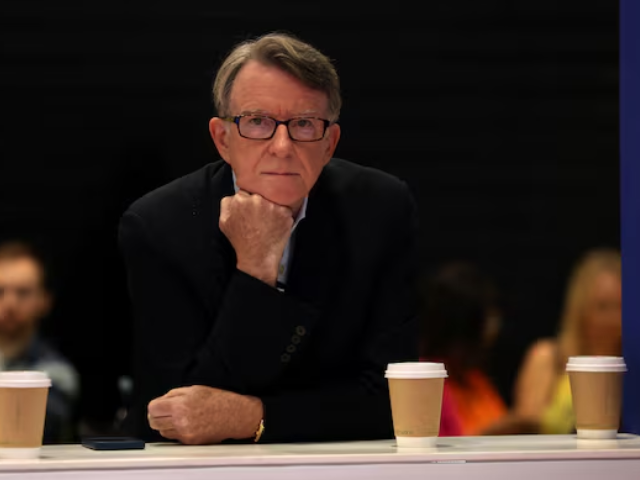Peter Mandelson is set to be appointed as Britain’s next ambassador to the United States, marking the first time in nearly 50 years that a politician has been given this prestigious role.
The announcement is expected to come from Labour leader Keir Starmer, who has selected Mandelson, a former Labour minister and European commissioner for trade, to take up the post. Mandelson will assume the position as Donald Trump begins his second term as president.
This appointment comes at a time when the UK faces potential shifts in its trade relations with the US under the incoming administration. Earlier this month, Prime Minister’s chief of staff Morgan McSweeeny traveled to Washington for discussions with Trump’s incoming White House team, reflecting the government’s focus on maintaining strong ties with the US.
The prime minister believes that Mandelson’s deep expertise in trade and his extensive political network make him well-suited to represent the UK’s interests during what is expected to be a “delicate period” in US-UK relations. Mandelson’s political career includes serving as business secretary under Prime Minister Gordon Brown, president of the Board of Trade in 1998, and European Commissioner for Trade from 2004 to 2008.
A government source spoke to the BBC, noting the significance of the political appointment: “The fact the prime minister has chosen to make a political appointment and sent Lord Mandelson to Washington shows just how importantly we see our relationship with the Trump administration.
We’re sending someone close to the prime minister with unrivalled political and policy experience, particularly on the crucial issue of trade. He’s the ideal candidate to represent the UK’s economic and security interests in the USA.”
The UK government is bracing for the impact of potential US tariffs, with Trump pledging to impose universal tariffs of up to 20% on all imported goods. This could lead to higher prices for American consumers, and the UK is preparing for the challenges these tariffs may pose.
In November, Stephen Moore, one of Trump’s senior economic advisers, suggested that the UK may need to align more closely with the US model of “economic freedom” to secure a favourable trade deal. “The UK really has to choose between the Europe economic model of more socialism and the US model, which is more based on a free enterprise system,” Moore said. “I think the UK is kind of caught in the middle of these two forms of an economic model.”
However, Keir Starmer has rejected the notion that the UK must choose between the US and the EU. He stated, “Against the backdrop of these dangerous times, the idea that we must choose between our allies, that somehow we’re with either America or Europe, is plain wrong. I reject it utterly. [Clement] Attlee did not choose between allies. [Winston] Churchill did not choose. The national interest demands that we work with both.”
Starmer reiterated his commitment to the UK’s “special relationship” with the US, emphasizing that the country’s interests are best served through cooperation with both the US and Europe. “This is not about sentimentality,” he added. “It is about hard-headed realism. Time and again the best hope for the world and the surest way to serve our mutual national interest has come from our two nations working together. It still does.”
Mandelson, known for his pragmatism in navigating global political and economic landscapes, has previously stated that the UK must find a balanced path between the US and the EU. He told the Times’ How to Win an Election podcast, “We have got to navigate our way through this and have, I’m afraid, the best of both worlds. We have got to find a way to have our cake and eat it.”











